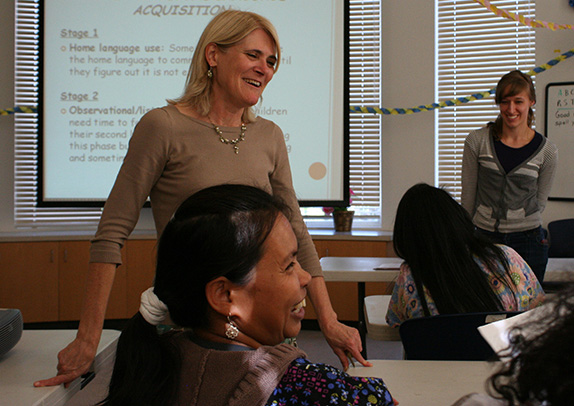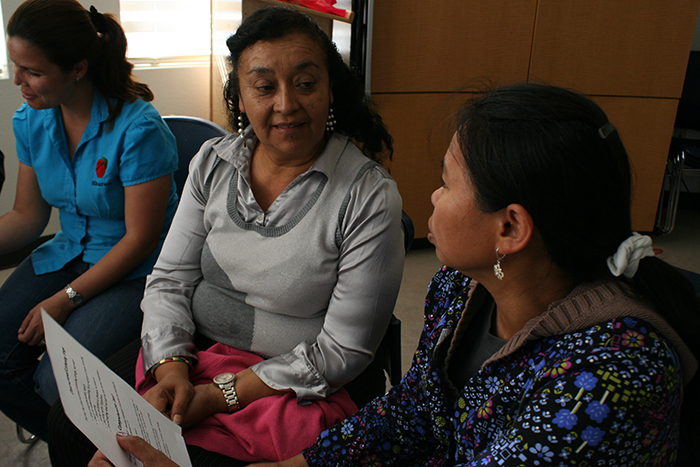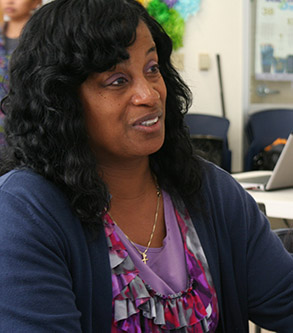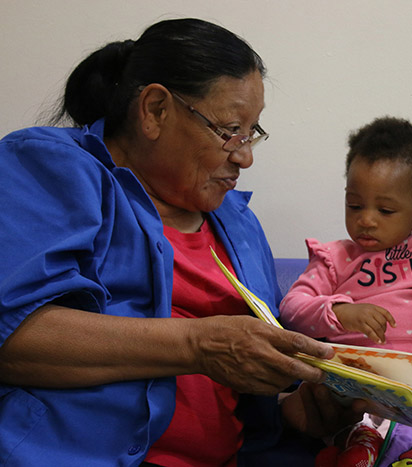The community of people that support the growth and development of infants and toddlers is broad and varied. Here are some particular roles and how PITC's products and services can support their unique needs.
Support Quality - As a trainer or coach, you understand the value of knowledge and skills to help teachers and children succeed. However, to train others, you need a solid foundation of knowledge and adult learning strategies.
The Program for Infant/Toddler Care (PITC) develops and conducts training for educators, program managers, and other professionals responsible for training infant/toddler care teachers. In these intensive sessions you will deepen your understanding of the PITC Philosophy and acquire skills in the integrated presentation of PITC concepts, so you can help teachers enhance the quality of care – and the children they care for thrive.
For more information about PITC training for trainers and coaches, visit:

Enhance your Practice with Children and Families - As an infant/toddler care teacher, working with a group of children and their families is challenging. Each child is different, and each family is looking to you for care and guidance. The Program for Infant/Toddler Care (PITC) helps you build relationships with infants and toddlers, and develop partnerships with their families, to help them thrive.
PITC resources and training are designed to help infant/toddler care teachers develop responsive, relationship-based care, become sensitive to infants' cues, and connect with their family and culture.
For more information on training, curriculum, and outcomes, visit:

Provide Your Best Practice - As a Family Child Care Provider you wear a lot of hats; administrator, teacher, entrepreneur. The Program for Infant/Toddler Care (PITC) offers a relationship-based approach to child care that can help you provide your best practice for the children and families you support.
PITC offers on-site and online training, conducted by experienced PITC certified infant/toddler specialists, on implementing the PITC philosophy and essential policies to promote high quality, responsive, relationship-based infant and toddler care. PITC also provides tools, resources, and technical assistance to help you.
For more information on PITC training and resources, visit:

Promote and Inspire Quality - As an infant/toddler program administrator, you keep your early care and learning community connected. The Program for Infant/Toddler Care (PITC) can help you create a program that benefits the children, families and teachers.
PITC provides training, tools, resources and technical assistance to help your teachers provide relationship-based care and to support your efforts in program quality enhancements, child growth and development, and curriculum planning.
For more information on training, curriculum, and outcomes, visit:

Build Your Expertise - As a Child Care Resource Specialist, you help connect infant and toddler programs to the resources and training they need to improve their services; which then benefits the children in their care. The Program for Infant/Toddler Care (PITC) is relationship-based approach that can strengthen your work.
PITC offers infant and toddler leaders and educators training and resources to expand the practice of responsive, respectful, relationship-based infant and toddler care. PITC training, tools, resources and technical assistance help teachers provide relationship-based care and support program quality enhancements, child growth and development, and curriculum planning.
For more information on training and resources, visit:

Sharpen your Focus on Children and Families - As an Early Head Start (EHS) staff member, you know infants and toddlers who have responsive, enduring relationships develop emotional security, which gives them the foundation for becoming socially competent and resilient. The Program for Infant/Toddler Care (PITC) is a relationship-based approach to infant/toddler care that offers a comprehensive menu of training options to support your EHS services.
The information presented at PITC Institutes can be directly linked to the Head Start Program Performance Standards for your easy application in lesson planning and program implementation. Through PITC, WestEd has trained over 4,000 Early Head Start (EHS) infant/toddler care teachers, home visitors and program managers since the program began in 1995.
For more information on Early Head Start options and services, visit:

Prepare the Workforce - As a community college, university, or college instructor you need quality, proven skills and knowledge to help teach your students learn how to care for infants and toddlers. The Program for Infant/Toddler Care (PITC) is a relationship-based approach to child care that can assist you and your students.
PITC develops and conducts training for high education faculty. These intensive sessions will deepen your understanding of the PITC Philosophy and give you skills in the integrated presentation of PITC concepts, so you can help your students – and the children they will care for – succeed. PITC also provides a library of resources that support relationship-based care.
For more information about PITC training for trainers and coaches, visit:

Deepen Your Understanding - As a parent, nothing is more important than your child’s care. The Program for Infant/Toddler Care (PITC) equates good care with trained infant/toddler care teachers who prepare themselves and the environment so infants can learn.
PITC trains infant/toddler leaders and educators to get "in tune" with each infant or toddler they serve and learn from the individual child what he or she needs, thinks, and feels. PITC also helps teachers design environments that ensure safety, developmental challenges, and optimum health for children, and make meaningful connections between child care and the child’s family and culture.
This approach allows relationships to develop and deepen over time between infant/toddler care teachers and the children as well as between infant/toddler care teachers and the children's families – all of which helps your child grow and succeed.
To learn more about PITC, its programs, and people, visit:
